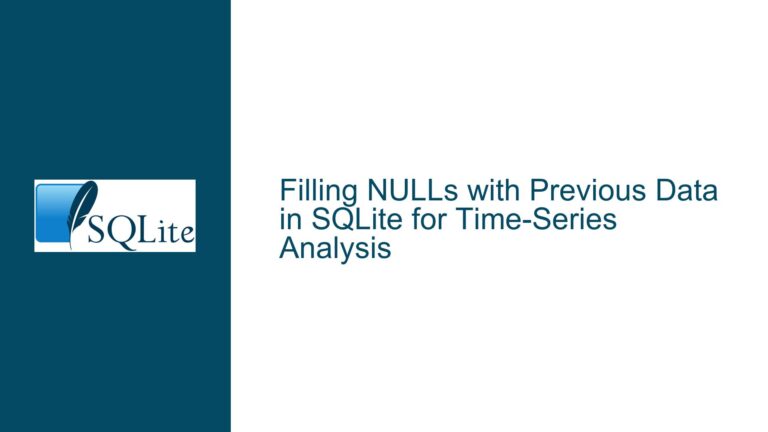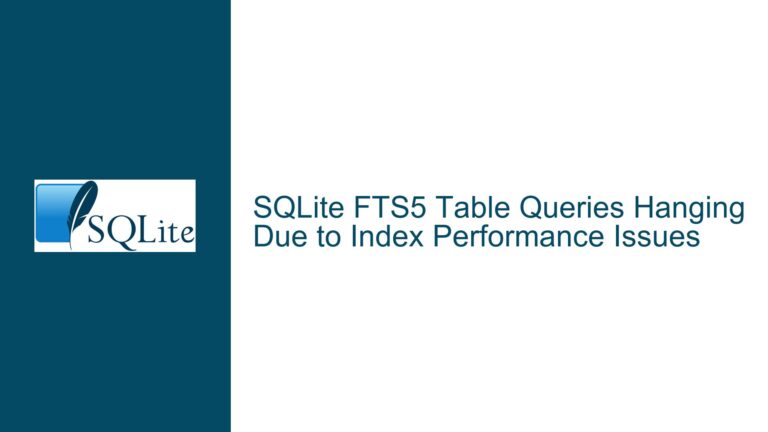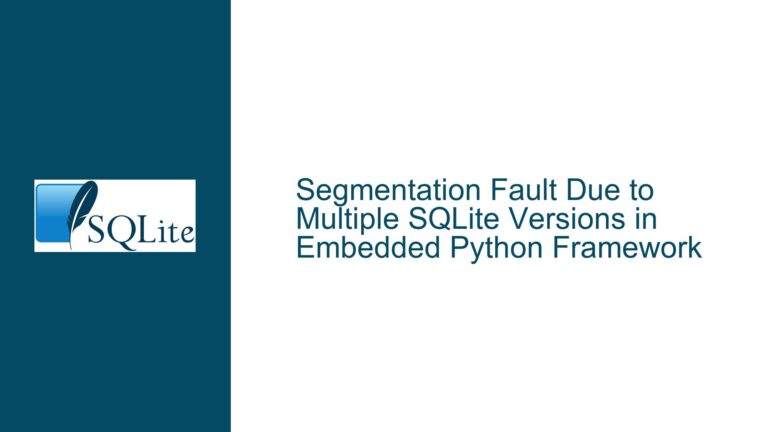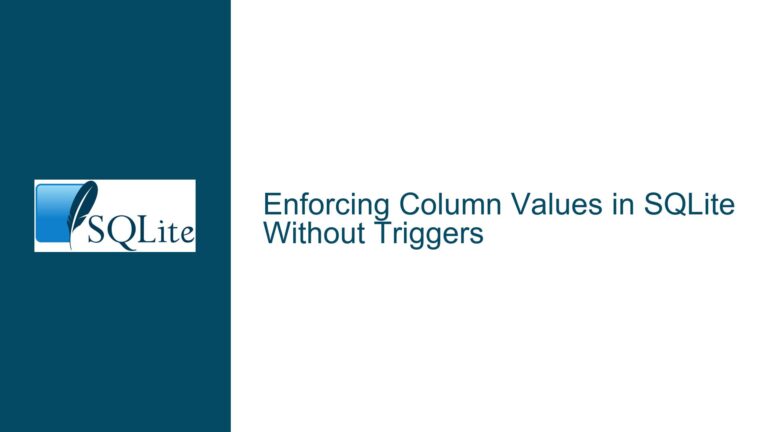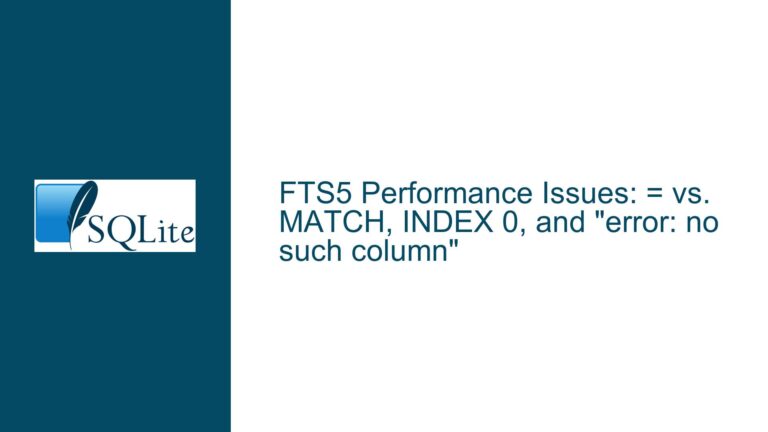Optimizing SQLite Query Performance on Large Tables with Composite Indexes
SQLite Query Performance Degradation with 33 Million Rows When dealing with large datasets in SQLite, performance optimization becomes critical, especially for queries that need to return results in a timely manner. In this scenario, we have a table named item containing 33 million rows, with a schema that includes columns such as id, date_time, list_id,…

